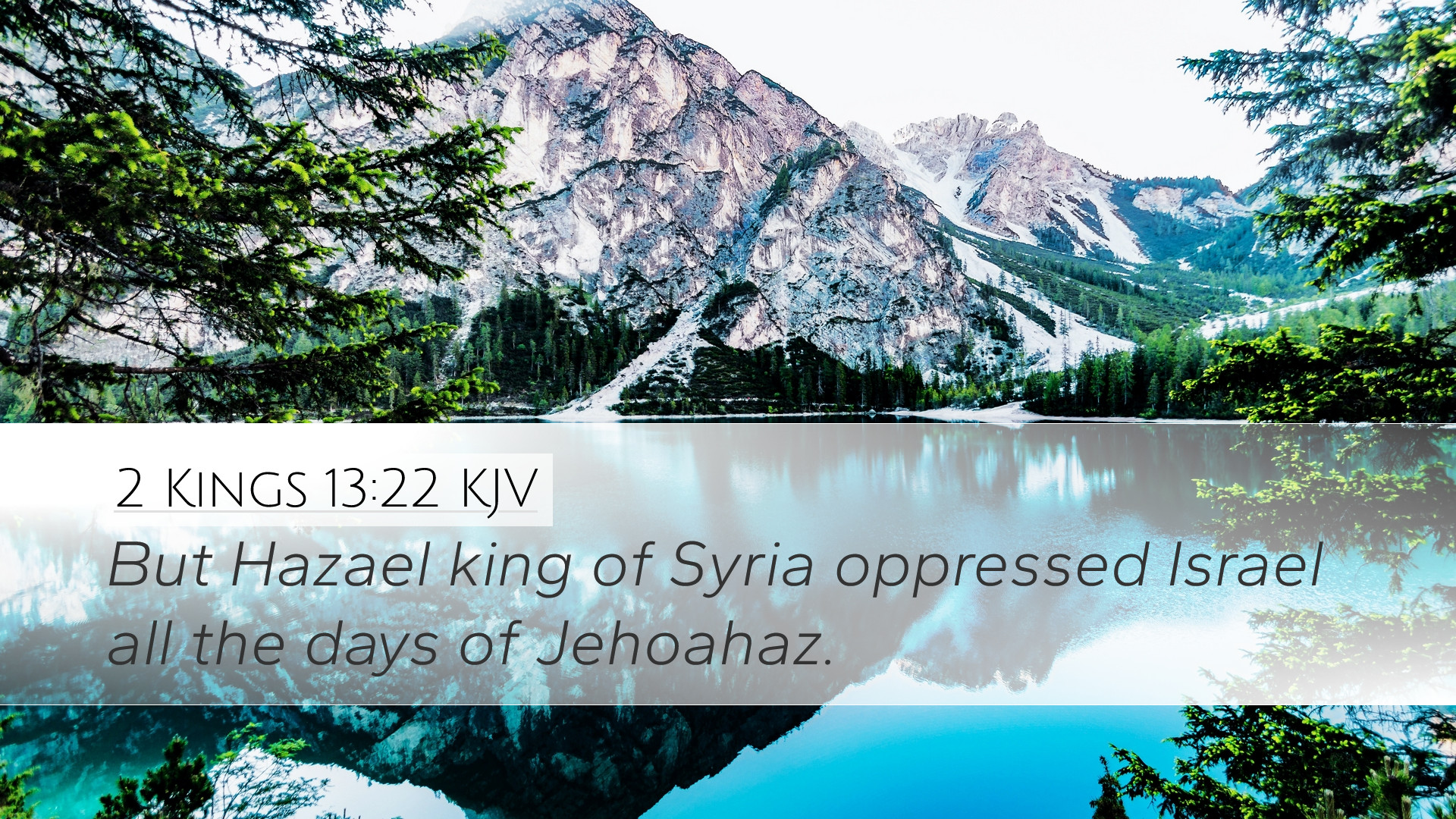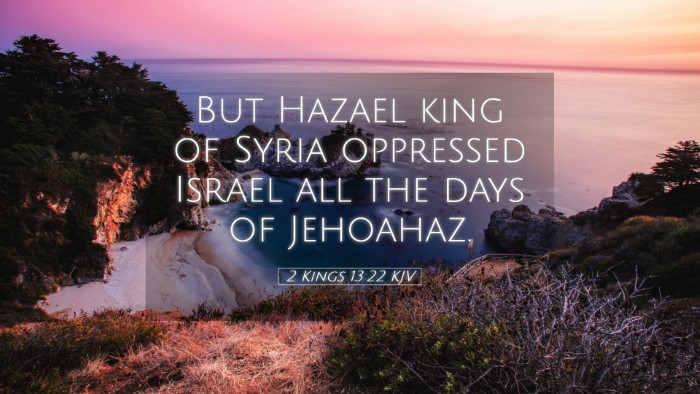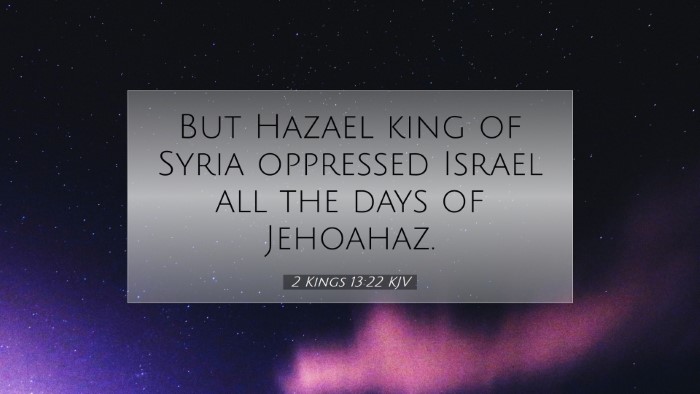2 Kings 13:22 - Bible Commentary
Verse Text: "But Hazael king of Syria oppressed Israel all the days of Jehoahaz."
Introduction
This verse encapsulates a significant moment in the history of Israel during the reign of Jehoahaz. The oppression by Hazael, king of Syria, denotes a critical point that reveals the cyclical nature of sin, judgment, and the overall sovereignty of God in Israel’s history. The commentaries by Matthew Henry, Albert Barnes, and Adam Clarke provide a multi-faceted understanding of this period.
Contextual Analysis
The historical context for this verse is rooted in the ages of both the northern kingdom of Israel and the kingdom of Judah. After the division of the united monarchy, Israel often faced adversities from neighboring nations. The oppression by the Syro-Arameans signifies not only a military threat but also a spiritual decline among the people of Israel.
Commentary Insights
Matthew Henry's Commentary
Matthew Henry emphasizes the consequences of Israel's persistent sin and idolatry, which led to divine judgment. He notes that God used Hazael as an instrument of punishment for Israel’s transgressions, illustrating a principle where sin brings forth oppression. Henry suggests that this verse serves as a reminder of how far Israel had fallen from their covenant relationship with God.
Albert Barnes' Notes
Albert Barnes expounds on the implications of Hazael's reign, highlighting the brutal nature of his oppression. He delves into the political and military history of Hazael and his aggressive expansionist policies. Barnes points out that while Hazael’s actions were politically motivated, they were permitted and ordained by God as part of His judgment upon Israel for their sins. The oppression mentioned here is not just physical but emphasizes the spiritual decline of Israel, who had forsaken the Lord.
Adam Clarke's Commentary
Adam Clarke provides an analytical perspective by discussing the character of Jehoahaz, the king during this period. He notes the king’s ineffectiveness against Hazael and the tragic state of the northern kingdom. Clarke points out that despite Jehoahaz's recognition of his need for divine help, the pervasive idolatry within Israel created a barrier to God’s favor. Clarke also remarks on the prophetic significance of the text, reminding readers that even in judgment, God’s mercy may still be present and that there is room for eventual restoration.
Theological Implications
The oppression described in 2 Kings 13:22 serves as a profound theological lesson. It embodies the concept of divine retribution and the seriousness of sin. The historical narrative shows how God’s judgment can manifest through external oppressors. However, it also suggests that God’s purposes may lead to redemption through recognizing sin and repentance.
Lessons for Today
- The Nature of God’s Judgment: This verse reminds readers that while God is loving and merciful, He is also just. The reality of sin leads to consequences that often affect entire communities.
- The Importance of Righteous Leadership: Jehoahaz’s leadership is a call for righteous governance. Leaders today are reminded of their responsibility to uphold God’s standards and lead their people in ways that honor Him.
- The Call to Repentance: The cycle of oppression can be reversed through genuine repentance. Churches and leaders must advocate for societal repentance to experience God’s restoration.
- Understanding Oppression: Recognizing that oppression can sometimes be allowed by God serves as a reminder that challenges and suffering may have a divine purpose.
Conclusion
2 Kings 13:22 serves as a powerful reminder of the historical and spiritual realities faced by Israel. Through the insights of various commentators, one can understand the deeper implications of oppression, the need for repentance, and the unwavering sovereignty of God in the midst of human failure. This verse invites pastors, students, scholars, and theologians alike to reflect on the state of their own hearts and the societies in which they live, encouraging a return to faithfulness and alignment with God's purposes.


